Sixth Form Subjects

English Literature
| Exam Board | Edexcel | Ask us a question | |
| Course Duration | Two Year, Full-Time | Apply | |
| Intake Date | September |
Course Overview
To develop a passion for English Literature through reading widely and independently, set texts and others that the students have selected themselves. They will engage critically and creatively with a substantial body of texts, including novels, plays and poetry and discover different ways of responding to them. Students will evaluate how different literary theories and other readers’ interpretations shape their own reading of a text. They will also develop and effectively apply their knowledge of literary analysis through the close critical reading of texts. Furthermore, students will demonstrate an appreciation of how contextual influences shaped the writers’ own lives, whilst also evaluating how social and historical contexts are reflected in the texts they are studying.
Course Content and Assessment
Examining board: Edexcel
Two year linear course of study.
Students must complete all three components to be awarded the A level in English Literature.
Component 1: Drama (examination)
- Shakespeare: Tragedy or Comedy
- ‘Other Drama’ Currently A Streetcar Named Desire
(30% of A level)
Component 2: Prose (examination)
- Two prose texts from a chosen theme, with at least one being pre-1900.
- Comparison of the two texts.
(20% of A level)
Component 3: Poetry (examination)
- A selection of post-200 poems (20% of A level)
- A specified range of poetry from a literary period.
(30% of A level)
Component 4: Coursework (NEA)
- Free choice of two texts to study from poetry, drama, prose or literary non-fiction. One extended comparative essay 2500-3000 words.
(20% of A level)
Learning Methods
Over the two year course of study, students will:
- Analyse texts in depth; exploring how language,structure, dramatic devices and poetical techniques affect and shape meaning.
- Explore contrasts, connections and comparisons between literary texts.
- Articulate informed, personal and creative responses to the texts, using associated concepts and terminology, and coherent, accurate, written expression.
- Explore how meaning and understanding are shaped by different interpretations over time.
- Identify and consider how attitudes and values are expressed in the texts.
- Consider the significance of contextual and cultural influences on readers and writers
- Explore the ways in which texts relate to one another and to literary traditions, movements and genres.
Close study of texts in and out of class; wider critical reading and study, including research and literary criticism; note making; discussion in class; oral presentations alone and in pairs; use of ICT; theatre visits where possible; written assignments, including coursework.
Future Pathways
 POSSIBLE Careeer Pathways
POSSIBLE Careeer Pathways
English Literature students progress to higher education courses in:
1. Legal professionals
2. Solicitors and lawyers
3. Legal associate professionals
4. Police officers (sergeant and below)
5. Legal secretaries
6. National government administrative occupations
7. Higher education teaching professionals
8. Human resources and industrial relations officers
9. Barristers and judges
10. Other administrative occupations
Entry Requirements
Grade 6 or above in both English Literature and English language Students will already show explicit engagement in reading coupled with a desire to interpret and write about a range of texts.
Students will be expected to and be enthused by presenting their ideas in seminar discussions, participate in class discussions, whilst working with discipline and enthusiasm on both group and independent assignments.
Student Testimonial
Testimonial in the pipeline
Other courses of interest
- Creative Digital Media
- Sociology
- Psychology





